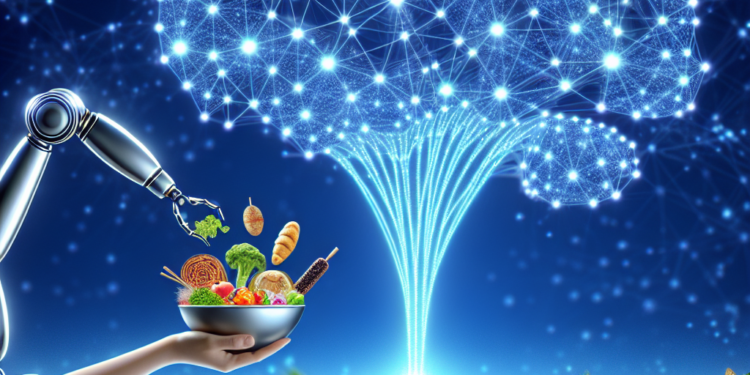Artificial intelligence (AI) is revolutionizing industries across the board, and the food and beverage industry is no exception. From optimizing production processes to improving customer service, AI is changing the way food and beverage companies operate. Here are some key lessons that the industry can learn from AI:
1. Improving Efficiency: One of the main benefits of AI in the food and beverage industry is its ability to improve efficiency. By automating repetitive tasks and processes, AI can help companies save time and resources. For example, AI-powered robots can be used in the kitchen to prepare food, reducing the need for human labor. This not only improves efficiency but also reduces the risk of contamination and improves food safety.
2. Enhancing Customer Service: AI can also be used to enhance customer service in the food and beverage industry. Chatbots, for example, can be used to provide round-the-clock customer support, answering frequently asked questions and helping customers place orders. This improves the customer experience and increases customer satisfaction.
3. Personalizing Marketing: AI can also be used to personalize marketing efforts in the food and beverage industry. By analyzing customer data, AI algorithms can identify trends and preferences, allowing companies to tailor their marketing campaigns to specific target audiences. This not only improves the effectiveness of marketing efforts but also improves customer loyalty and retention.
4. Predictive Maintenance: AI can also be used in the food and beverage industry to predict when equipment and machinery will fail. By monitoring data and analyzing patterns, AI algorithms can identify potential issues before they occur, allowing companies to schedule maintenance and repairs proactively. This reduces downtime and increases operational efficiency.
5. Improving Inventory Management: AI can also be used to optimize inventory management in the food and beverage industry. By analyzing sales data and predicting demand, AI algorithms can help companies determine the optimal levels of inventory to maintain. This reduces waste and improves profitability.
6. Enhancing Food Safety: AI can also be used to improve food safety in the food and beverage industry. By monitoring processing and production processes, AI algorithms can identify potential issues and deviations from standard procedures. This allows companies to take corrective action before food safety is compromised.
7. Streamlining Supply Chains: AI can also be used to streamline supply chains in the food and beverage industry. By analyzing data and optimizing logistics, AI algorithms can help companies reduce costs and improve efficiency in sourcing, production, and distribution.
8. Enhancing Product Development: AI can also be used to enhance product development in the food and beverage industry. By analyzing customer feedback and market trends, AI algorithms can help companies identify opportunities for innovation and develop new products that meet customer needs.
9. Improving Sustainability: AI can also be used to improve sustainability in the food and beverage industry. By analyzing data and identifying areas for improvement, AI algorithms can help companies reduce waste, energy consumption, and carbon emissions. This not only benefits the environment but also improves the company’s reputation and brand image.
10. Leveraging Data: Finally, one of the key lessons from AI in the food and beverage industry is the importance of leveraging data. By collecting and analyzing data from various sources, companies can gain valuable insights that can help them make informed decisions and drive business growth. AI algorithms can help companies process and analyze large volumes of data quickly and accurately, allowing them to make strategic decisions that drive business success.
In conclusion, AI is transforming the food and beverage industry in many ways. From improving efficiency and customer service to enhancing product development and sustainability, AI is helping companies stay ahead of the competition and meet the evolving needs of consumers. By learning from the lessons of AI, food and beverage companies can leverage technology to drive innovation and growth in the industry.













